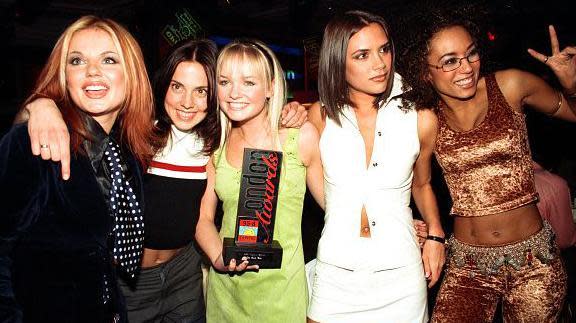Is it 1997 all over again as Tory MPs head for the exit?

On Friday evening, the number of current MPs standing down rather than fighting the general election passed 117, overtaking the level reached in 1997.
That was the year that saw the Spice Girls' release their second album, J.K. Rowling published the first Harry Potter book and more significantly, politically at least, Labour leader Tony Blair securing a landside election victory.
Now in 2024, the year of Taylor Swift and the Healthy Air Fryer Book, 131 MPs have announced their departure - the majority of them Conservatives.
MPs retire for all sorts of reasons but the thought that their party could be heading for another historic drubbing and a long spell in opposition is sure to be playing on Tory minds.
The nineties were arguably more optimistic times, with the end of the Cold War and a booming economy and the country was clearly in the mood for a change of government after 18 years of Conservative rule.
But 1997 was not the year that saw the most MPs deciding to call it quits.
That came in 2010 - after 13 years of Labour rule, when 149 MPs stood down - including 100 Labour MPs and 35 Conservatives.
David Cameron did not quite win the 2010 election and had to form a coalition government with the Liberal Democrats, but he became the first of five Tory prime ministers to have held office over the past 14 years.
It's easy to see a pattern here, with MPs in a party that has been in power for a long time sensing which way the wind is blowing and deciding to seek alternative employment before the voters do it for them.
The ranks of departing MPs were swollen in 2010 by those forced to stand down by the expenses scandal that rocked Westminster a year earlier.
But this year's mass exit certainly bucks the trend of most other recent elections, when the governing party did not change.
In 2019, 74 MPs stood down. The numbers were even lower in 2017, with 31, and 2015 saw 90.
And whoever wins July's general election, it means there will be a significant number of new faces in the House of Commons - and a few household names who will go back to being relatively anonymous.
Conservative ex-Prime Minister Theresa May, former interim Labour leader Harriet Harman, long-standing minister Michael Gove and and former health secretary Matt Hancock are among those who have decided not to run for re-election.
The Conservatives this week re-admitted Mr Hancock and Bob Stewart who were among the Tory MPs suspended by the parliamentary party after various scandals and infractions.
(By the end of the Parliament there were 17 MPs who had been suspended by their parties - most were Conservatives, but Labour, the SNP, the DUP and Plaid Cymru have all had to remove the whip from at least one of their MPs over the past four years).
Mr Hancock was suspended as an MP for taking part in I'm a Celebrity... while Parliament was sitting.
Former army officer Mr Stewart lost the whip after he told an activist to "go back to Bahrain" in a row outside the Foreign Office. The 74-year-old was convicted of a racially aggravated public order offence - only to see the conviction quashed three months later.
So far 78 Conservative MPs have announced their intention to quit.
Those stepping down cut across age groups and genders, with no single group standing out as the most likely to leave.
In some cases, young MPs who have been in the Commons for only a few years are leaving - such as Conservatives Dehenna Davison, who is 30, and 29-year-old Nicola Richards, both elected in 2019.
SNP deputy leader Mhairi Black, who's 29 and was first elected in 2015, is also standing down.
But many quitting have been in the Commons for a long time - it is natural for MPs to stand down each election due to age or new career pursuits.
Labour sees 30 of its MPs departing, though two of these were elected as Conservatives - Dan Poulter and Natalie Elphicke.
Speaking in her valedictory speech, Mrs May said being an MP "is the best job in the world" despite what she called "its frustrations".
"It particularly has its frustrations when you're in parliament and people don't vote on your own side for your own legislation - three times," she says to laughter, in reference to her Brexit defeats in the Commons.
Mrs May also urged her Conservative colleagues to "go out there and fight to ensure a Conservative government is re-elected".
The longest-serving female MP, Harriet Harman, said: "The House of Commons records show that I've spoken in this chamber 9,880 times.
"But I have to say that when you discover the prime minister was only two years old when you were first elected, you realise it is time to move on."
Other big names departing Westminster include former deputy PM Dominic Raab, former Environment Secretary Andrea Leadsom, COP26 president Sir Alok Sharma, and the former foreign secretary, Labour's Dame Margaret Beckett.
The Scottish National Party loses nine MPs, while Plaid Cymru and the Green Party each bid farewell to one. Sinn Fein sees three departures and former DUP leader Jeffrey Donaldson will not stand again.

